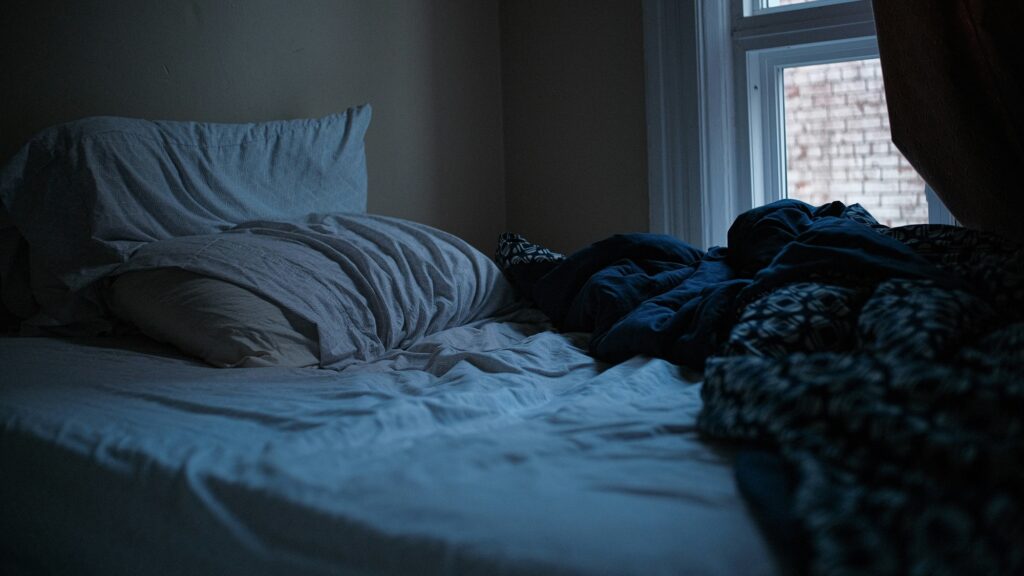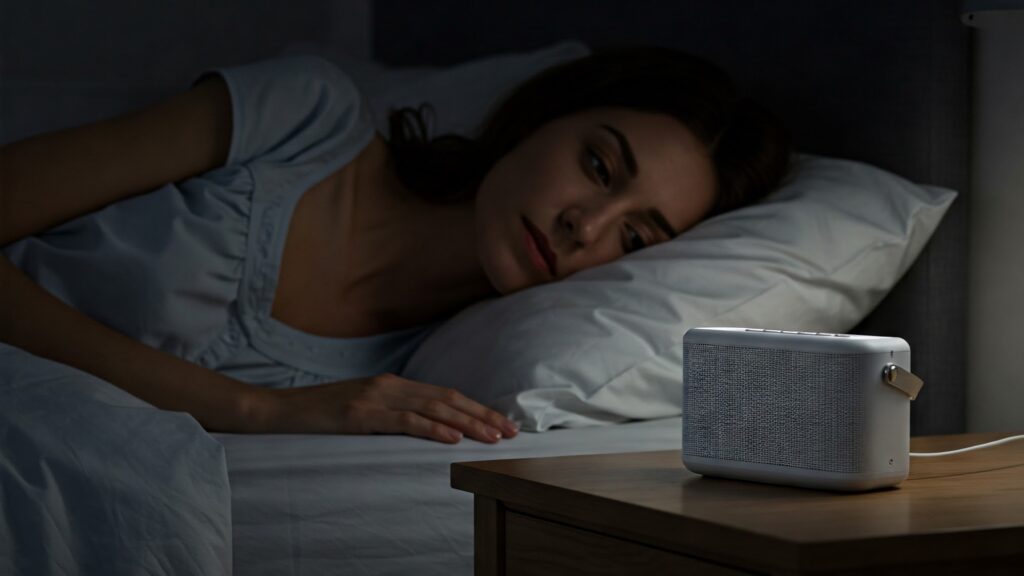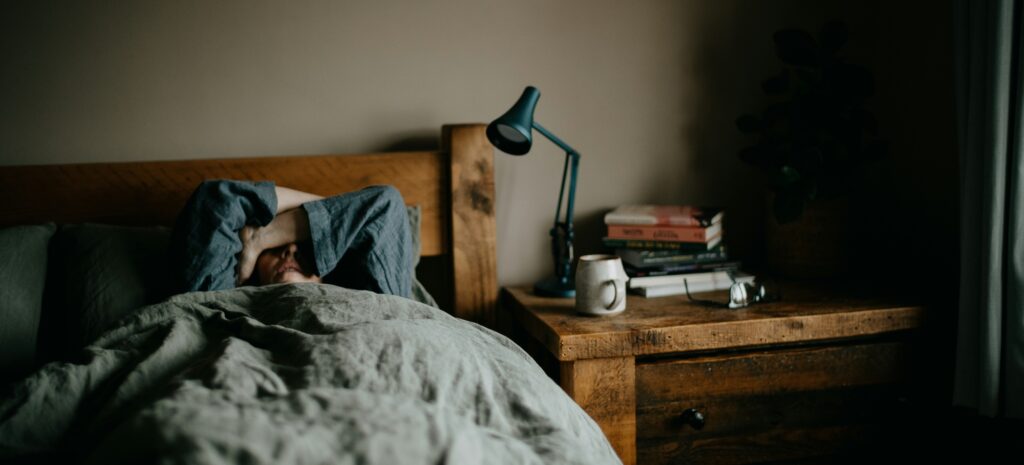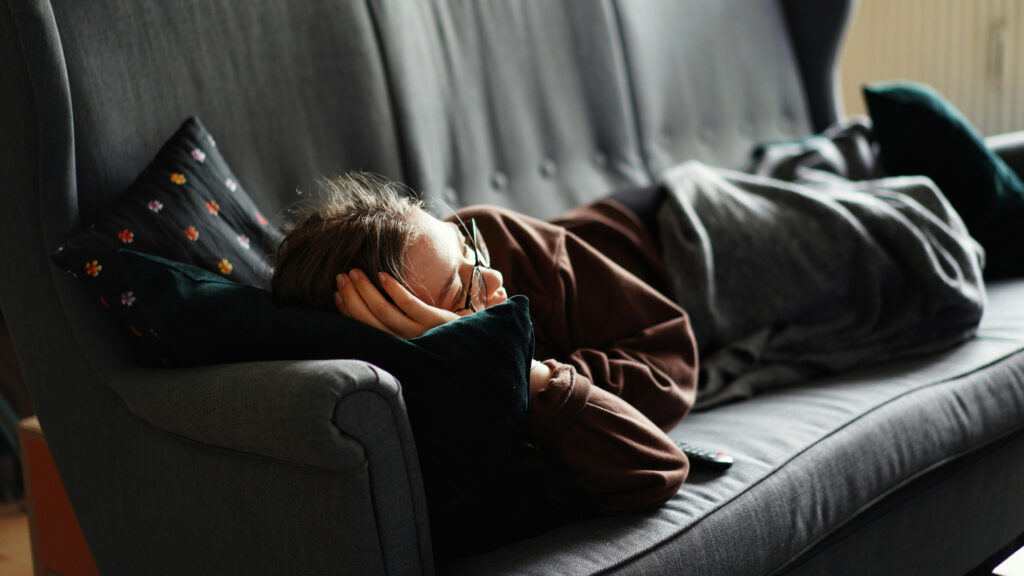Sleep is deeply personal, but one factor affects everyone: age.
As we age, we spend less time in deep and REM sleep stages. Light sleep creeps in to fill the gaps but is less restorative. That’s why older adults often feel tired despite logging a full night in bed.
In this article, we look at what changes in our sleep architecture as we age, and what we can do to make the most of it.
Highlights
- As we age, deep and REM sleep drop, which can lead to feeling less refreshed.
- “Biological sleep age” is emerging as a way of measuring the cognitive decline of aging.
- Mitigating lost deep and REM sleep with improved habits and hygiene can offset the effects of sleep-related aging.
What happens to sleep as we age?

Sleep architecture evolves significantly over the lifespan. Children experience long stretches of deep, restorative sleep, while older adults often face more fragmented nights. And it’s not just more waking during the night – the structure of sleep itself shifts. [Ohayon et al., 2004]
Deep sleep (stage N3, also known as slow-wave sleep) drops by around 2% every decade after your early 30s. This is a measurable decline in the very phase of sleep that supports memory, metabolic function, and immune repair. [Frontiers in Sleep, 2024; Mander et al., 2016]
REM sleep also becomes more fragile. It decreases more gradually than deep sleep but becomes increasingly fragmented. The result: older adults often wake feeling unrefreshed despite spending enough hours in bed. [Sleep Review / Fullpower-AI & Stanford/UCSF, 2024]
Light sleep, particularly stage N2, expands to fill the space. But it doesn’t provide the same brain or body benefits. This shift may contribute to cognitive decline over time.
Can sleep tell us more about how we age?
Sleep is no longer just a proxy for rest – it’s emerging as a biomarker of aging.
Research shows that changes in the fine-grained structure of sleep, known as microarchitecture, may reveal how fast or well we’re aging. For instance, the density of sleep spindles during N2 sleep and the amplitude of slow waves in N3 both decline with age.
These aren’t just signs of poor rest; they correlate with brain atrophy, reduced neuroplasticity, and increased risk of cognitive decline. [Gorgoni et al., 2016; Parker et al., 2022]
Standard sleep metrics (REM, NREM, total time in bed) often miss these nuances. But newer sleep tracking methods – especially when combined with biomarkers like heart rate variability (HRV), glucose variability, and core body temperature – are helping researchers build a more accurate picture of “biological sleep age” – a metric that may diverge significantly from your birth certificate. [Fullpower-AI & Stanford/UCSF, 2024]
In other words, how we sleep may be one of the earliest and most sensitive indicators of how fast – or how well – we’re aging. [Mander et al., 2016]
Can sleep tell us more about how we age?

We can’t stop age-related changes in sleep, but we can maximize how well we sleep despite them.
Boosting deep and REM sleep can offset some of the effects caused by the decline in sleep quality as we age. You can’t force these stages, but you can create conditions that support them.
Start with consistency. Aim to spend 7–9 hours in bed each night to give your body enough time to cycle through deep and REM sleep, and try to sleep and wake at the same time each day.
Optimizing your sleep environment also helps maximize deep sleep, and even small tweaks can lead to deeper, more continuous rest. Keep your room dark, cool, and quiet, and invest in a new mattress or pillows if needed. A sleep mask and blackout curtains can reduce ambient light, which can aid deep sleep. Earplugs or white noise can also mask or block disruptions.
Also, enjoying a quality wind-down, avoid screens for an hour before bed, and avoid caffeine in the afternoons. Ensure you finish eating 3+ hours before sleep and cut out late evening exercise, too.
Supplements like magnesium may help promote restful sleep, particularly if you’re deficient. Melatonin can also support restful sleep and is shown to improve deep sleep and sleep onset.
Conclusion
Sleep will change with age – that’s biology. But there’s plenty we can do to protect sleep quality, preserve cognitive function, and stay healthier for longer.








